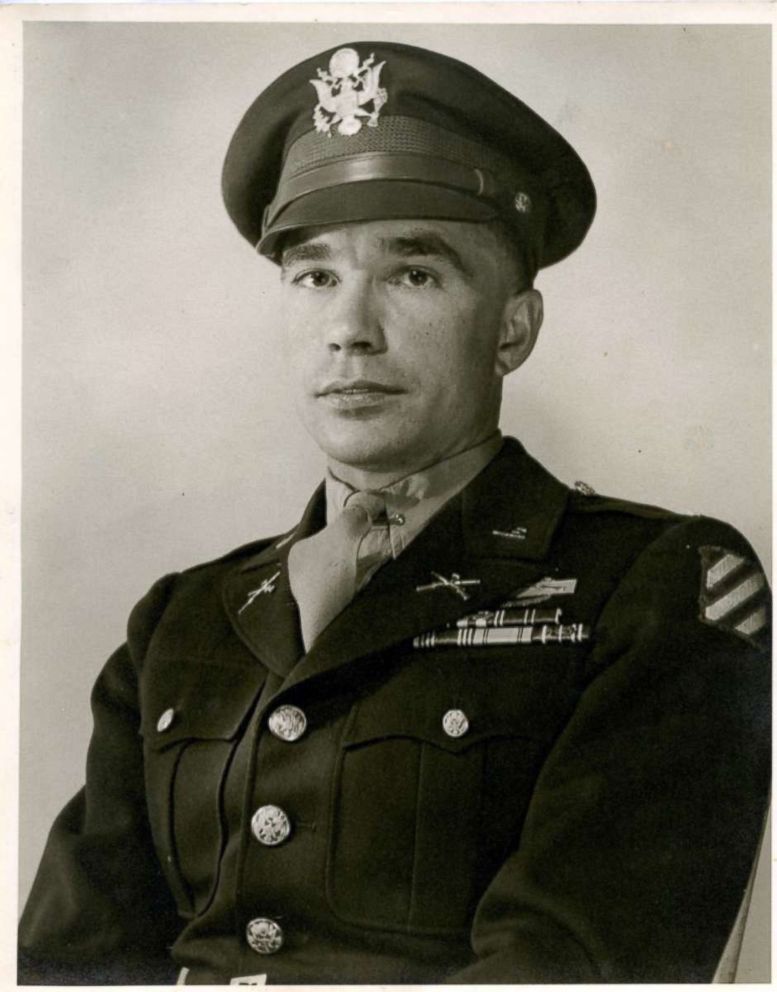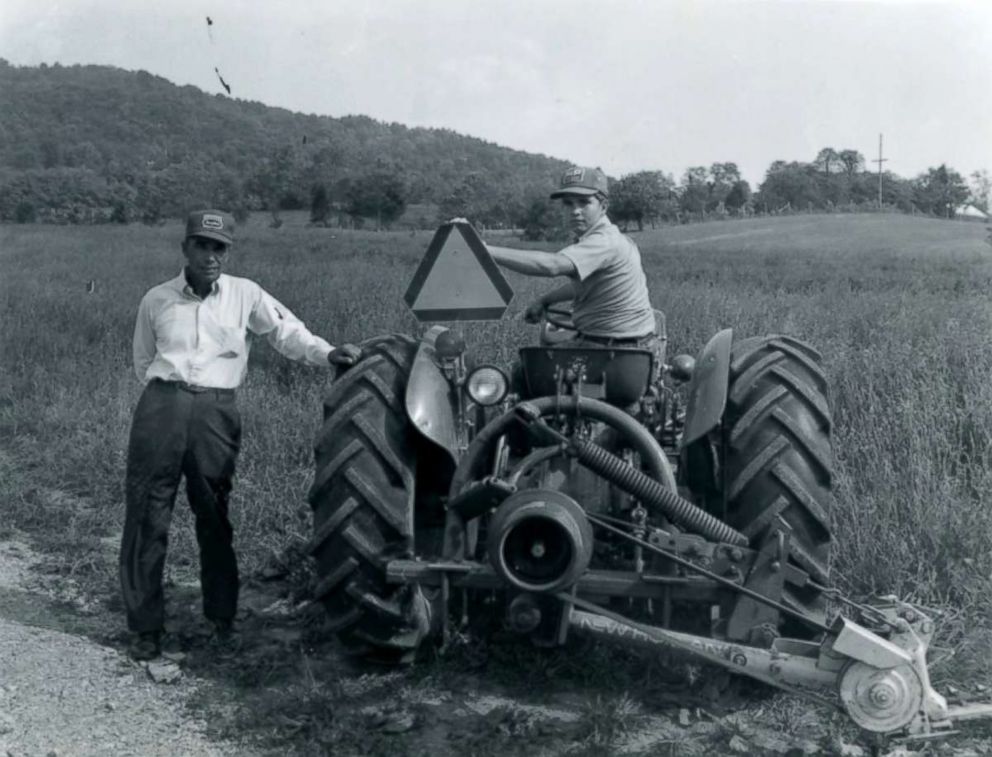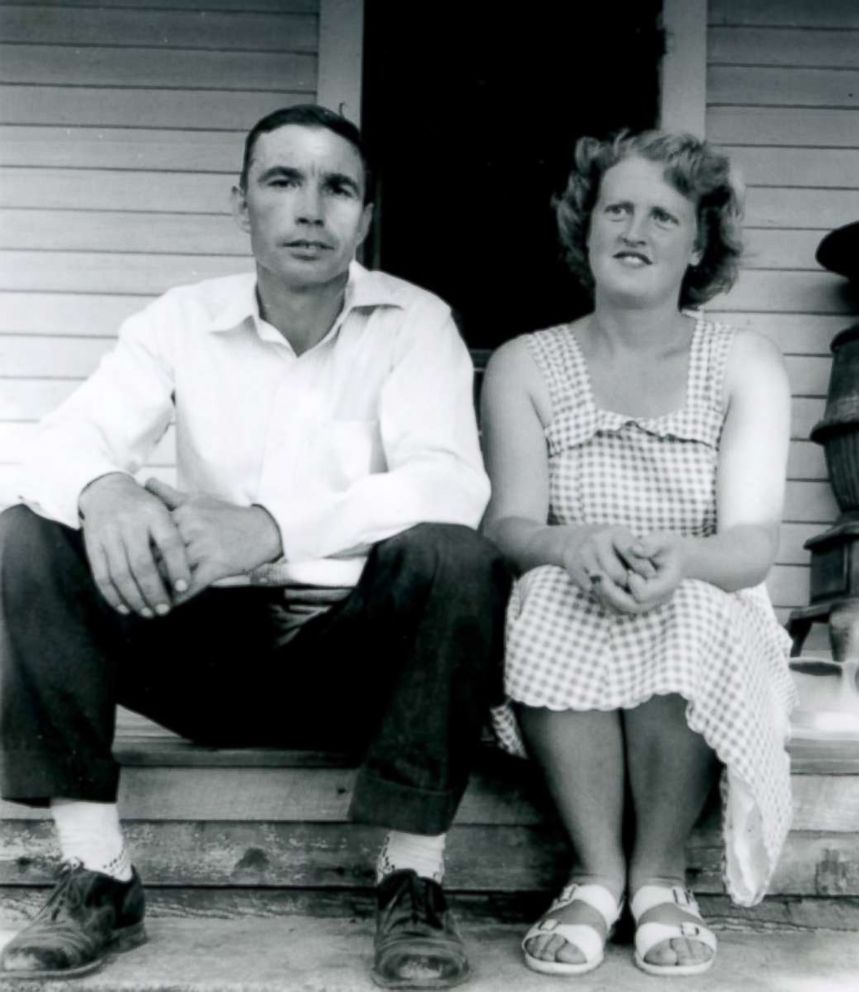Widow accepts Medal of Honor on behalf of WWII hero husband
The president posthumously awarded the Medal of Honor to 1st Lt. Garlin Conner.
President Donald Trump posthumously awarded the Medal of Honor on Tuesday to 1st Lt. Garlin Conner for his heroic actions during World War II, saying that "he takes his rightful place in the eternal chronicle of American valor."
It's believed that Garlin has now become the second-most-highly decorated WWII veteran, after Audie Murphy.
The award was accepted by Garlin's wife of 53 years, Pauline Conner, 89, of Clinton County, Kentucky.
"Today, we pay tribute to this Kentucky farm boy who stared down evil with the strength of a warrior," Trump said at the White House.
The Conner family had been working for 22 years to have Garlin's Distinguished Service Cross upgraded to the Medal of Honor – after more recently understanding just how heroic his achievements had been during the war.
Born on June 2, 1919, in Aaron, Kentucky, Garlin enlisted in the Army at 22 years old and deployed with the 3rd Infantry Division just a year later.
During his 28 months on the front lines, he would be involved in 10 campaigns, participate in four amphibious-assault landings, and be wounded seven times.

On Jan. 24, 1945, six German tanks and approximately 600 infantrymen converged on the U.S. position when Garlin ran forward with a military telephone and telephone wire to call in artillery fire on the enemy.
For three hours, he hid in a shallow irrigation ditch with little cover from machine-gun and small-arms fire. At one point, German forces came within 10 meters of his location, and Garlin even called artillery fire on his own position in order to push back the enemy.
"They [Germans] knew he was there and they couldn't get him," Trump said.
The Army estimates that the artillery he directed while under fire "killed approximately 50 German soldiers and wounded at least 100 more, thus preventing heavy casualties in his battalion."
When Garlin returned to Kentucky in the summer of 1945, a 15-year old Pauline was in the hometown crowd that gathered to celebrate their "war hero." She had read stories about Garlin in the newspaper and wanted to meet him.
One year later, they were married.
The new couple ran a 36-acre farm in Clinton County and raised their son, Paul.

"He loved his farm life. He loved his family," Pauline told reporters at the Pentagon on Monday.
He was president of the Clinton County Farm Bureau for 16 years and a frequent church attendee.
Though Garlin never spoke about his time in the military, Pauline now recognizes symptoms he exhibited as characteristic of Post Traumatic Stress Disorder. She said Garlin would often wake up with nightmares and retreat to their front porch to smoke cigarettes.
"He just didn't want to talk about it," she said, describing her husband as "a very humble man."

Pauline found her husband's numerous awards, including a Silver Star and the Purple Heart, at the bottom of his Army duffel bag.
When Garlin became sick in 1979, the couple began volunteering with veterans, which she thinks helped spark his desire to upgrade his award to the Medal of Honor. Though Garlin passed away from kidney failure and diabetes in 1998, his family and friends never stopped pushing for that highest honor.
Maj. Gen. Leopoldo Quintas, the current commander of the 3rd Infantry Division, said the qualities Garlin exhibited that day in 1945, like the ability to move quickly and communicate, are still important to the Army.
"These are fundamentals that we instill in our soldiers today," Quintas told reporters on Monday. "So much of what happened on the ground that day ... has direct application."
"From humble beginnings, greatness comes," he added.
Garlin is the 40th 3rd Infantry Division Soldier to receive the Medal of Honor for actions during WWII.
"He [Garlin] will never, ever be forgotten," Trump said. "We will never forget his story."




